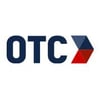
OTC Insights Team
Established in 1963, OTC Industrial Technologies (Ohio Transmission Corporation) is one of the largest industrial distributors & service providers in the United States. We're committed to seeing industrial operations advance through expert technical solutions & unmatched support using our years of experience.
Automation is a segment of technologies and tools that can take the place of human labor and activity in work process. For example, an automated door will open as you approach, eliminating the need for you to open it yourself.
 What Is Automation in Manufacturing?
What Is Automation in Manufacturing?
In manufacturing, automated machinery can enhance the production process by completing tasks that human workers once had to complete manually, allowing them to move to higher-priority work. This streamlines production, reduces the need for human labor, and in most cases increases efficiency, reduces costs, and boosts throughput.
For example, in the automotive industry, an automated assembly machine will build parts with robotic precision and accuracy, operating much faster than a human worker and without the need for breaks, lunch, or regular time off.
Many manufacturers have focused time and resources on advanced automation for labor-heavy work early in the production process, but there is more focus on the finishing process now. With the labor struggles many finishing departments are facing, there is a push to leverage automation.
Automation and the Finishing Department
Automation, if integrated correctly, allows finishing facilities to increase efficiency, lower costs, and reallocate labor.
The finishing process, including the paint line, can be automated using robotics. Armatures conduct the work, while sensors and control systems guide and control the work being done.
With automation, you can pick and choose the activities that will be handled by the system. This can be as simple as a hard-wired control that is turned on and off by an operator, or a fully automated system that can be controlled remotely over the cloud or by an artificial intelligence (AI) system.
Manufacturers have the capability to move as fast or slow as they want in implementing automation for finishing.
How Is Automation Used in Finishing?
Automated spray and paint booths fall into four different categories: Synchronous, non-synchronous, single-station, and continuous.
Synchronous and Non-Synchronous Spray Booths
Synchronous spray booths are ideal for operators looking to provide efficient and consistent spray services that require little to no intervention. Synchronous booths work best for high-volume spray booth work where repetitive and consistent results are needed. On the other hand, non-synchronous booths tend to be much slower but provide added flexibility for booth adjustments. Non-synchronous booths work better for custom paint jobs where the flexibility between work allows for faster adjustments to be made to the booth.
Single Station Booths
Single station booths tend to be the most common across various industries. These spray booths are unique, as they range from partial to total automation, with the assistance of robotic pieces. Single station booths also tend to be the most affordable option in terms of machinery but do require labor.
Continuous Booths
Finally, continuous booths remain in motion throughout the entire finishing process. This style of booth is useful for departments that endure high volume, as continuous booths work to stay consistent in time with the entire production line.
Getting Started with Automation for Finishing
With paint system automation systems becoming more common, and becoming a competitive and marketable advantage, it’s important for manufacturing leaders to start exploring the options and possibilities offered by automation.
OTC Industrial Technologies and our Finishing, Dispensing, and Filtration team are leaders in the industry. We offer end-to-end, turnkey finishing solutions for manufacturers. From designing and optimizing a system, engineering, and providing materials and supplies, to managed inventory programs, to service and repair, OTC is a one-stop shop for manufacturers.
In addition, OTC offers specialists and expertise in automation. Turnkey solutions in automation mean design, engineering, consultation, planning, and optimization, as well as products, equipment, training, and installation.
What that means for manufacturers is an easier planning and implementation experience, faster ROI, and a sustainable long-term solution.
Before starting a new project, make sure to contact OTC to discuss your needs with a free consultation. Let’s see how you can make automation work for you.
Stay up to date
SUBSCRIBE TO OUR BLOGPosts by Tag
- General Manufacturing (102)
- Compressed Air Solutions (61)
- Automotive (35)
- Finishing and Dispensing (33)
- Rotating Equipment (31)
- Maintenance & Repair Services (22)
- Industrial Automation (21)
- Case Studies (19)
- Electronics & Semiconductor (16)
- Sustainable Manufacturing (12)
- Energy Efficiency (10)
- Filtration (9)
- Energy, Power & Utilities (8)
- Oil & Gas (6)
- Food & Beverage (5)
- Biotech & Pharmaceutical (4)
- Chemical & Petrochemical (3)
- Industrial OEMs (3)
- Steel & Metal Manufacturing (3)
- Aerospace (2)
- Agriculture (2)
- Packaging & Processing (1)
- Pulp & Paper (1)

